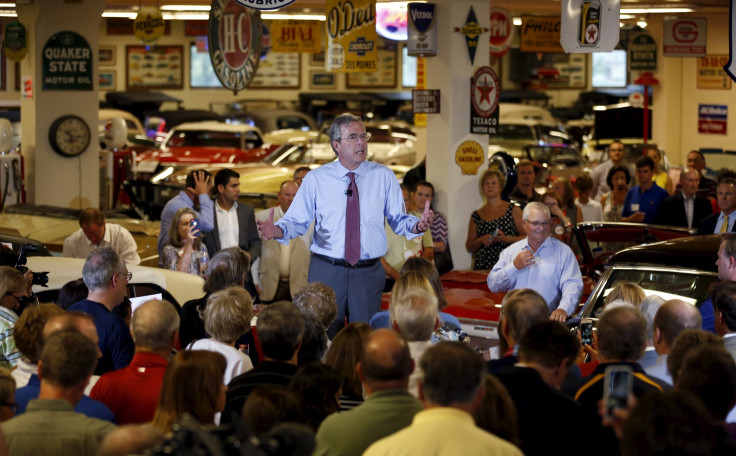2016 Election: Jeb Bush Defends Brother's Iraq Legacy Amid Falling Polls

Jeb Bush is continuing his focus on foreign policy this week, and on Thursday, he defended some of the most defining decisions of his brother's presidential tenure. During a Q&A session in Iowa, Bush sought to cast the ouster of Saddam Hussein and the 2007 troop surge in a positive light, according to the Washington Post.
The choice to talk about his brother, former President George W. Bush, comes after months of avoiding explicitly discussing the subject. In May, Bush said that he would not have gone to war in Iraq knowing what he knows now. But he made the statement after fumbling the question repeatedly.
On Thursday, when asked about President Barack Obama's executive action to end American torture policies -- signed just days after Obama was inaugurated -- Bush demurred. "I do think in general that torture is not appropriate," he said, without committing to keeping Obama's policy. He also made an effort to defend the Guantanamo Bay detention facility in Cuba, a prison that President Bush created and one that Obama wants to close down. "This is not a torture chamber," he said.
Faced with dipping polling since the first Republican debates, Bush gave a foreign policy address Tuesday from the Ronald Reagan Presidential Library, in which he attacked President Obama and former Secretary of State Hillary Clinton, the Democratic front-runner, for their Middle Eastern foreign policy since Obama took office in 2009. He blamed the duo for the rise of the Islamic State group, which would never have come to power, Bush argued, if the United States had stayed longer in Iraq after the surge.
The first Republican debates last Thursday shook up the large Republican field. Bush, after what many considered to be a lackluster performance on the stage, is barely ahead of Ohio Gov. John Kasich, who announced his candidacy relatively recently and was polling poorly right before the debates.
© Copyright IBTimes 2025. All rights reserved.






















